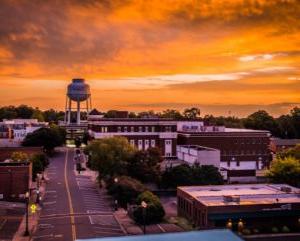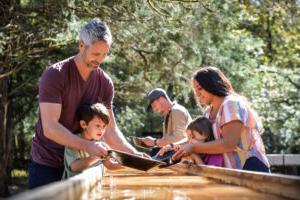The history books are filled with interesting facts about Cabarrus County: The county was formed from Mecklenburg County in 1792 and named for Stephen Cabarrus, a member of the North Carolina State Legislature and Speaker of the House of Commons. The area was also the site of the first gold rush in the nation and one of the leading producers of textiles. “There’s a lot of amazing history here, ” said Ashley Sedlak-Propst, president and CEO of the Historic Cabarrus Association.
Historic Sites
Visiting the sites where history was made is one of the best ways to experience Cabarrus County.

Reed Gold Mine
In 1799, a 12-year-old named Conrad Reed discovered a 17-pound gold nugget in Little Meadow Creek, which would become the first documented gold discovery in United States history. Today, visitors can pan for their own gold, tour restored mine tunnels, view exhibits and equipment on display, and learn about the history surrounding this discovery at the state historic site in Midland.
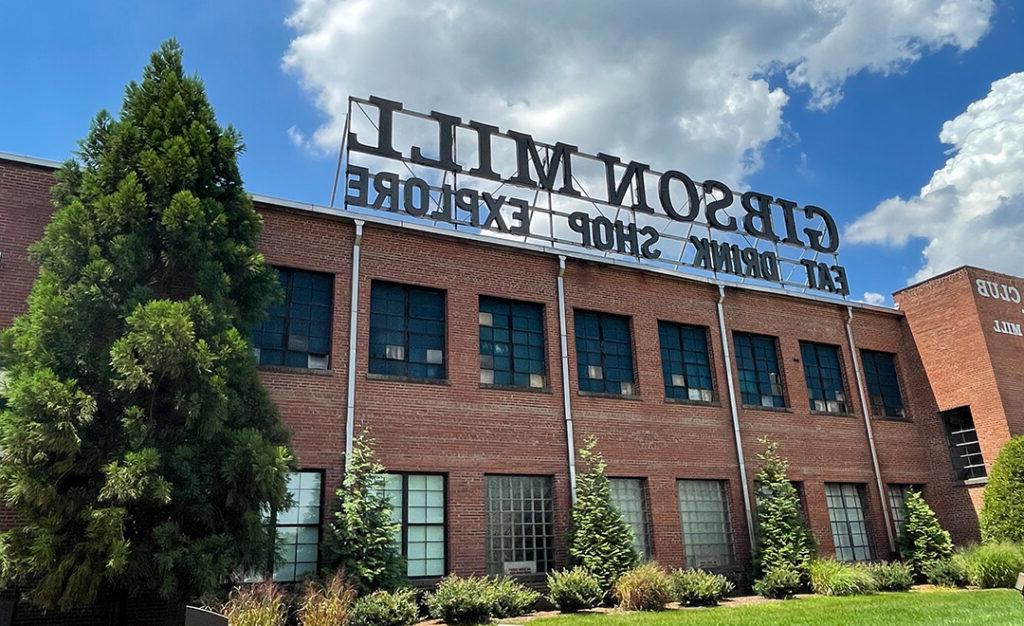
Gibson Mill
The historic textile mill was built in 1899 and served as Plant No. 6 for the Cannon Mills Company. Now, the 656,000-square-foot mill is a retail and entertainment hub and one of the most successful adaptive reuse projects in the region.

Eat and drink at locally sourced food hall, Gibson Mill Market; shop for vintage items at The Depot at Gibson Mill, the largest antique mall in the South; order a pint of craft beer at Cabarrus Brewing Company or High Branch Brewing Company; test your aim at the indoor axe throwing range; or enjoy some friendly competition at the board game café.

1876 Cabarrus County Courthouse
The courthouse in downtown Concord is “one of the shining examples of historic preservation,” according to Sedlak-Propst.
It served as the judicial center for the county for more than a century. Now, the courthouse — designed in a combination of Greek Revival, Italianate and Second Empire architectural styles — is home to both the Historic Cabarrus Association and Cabarrus Arts Council, and it serves as a museum, live performance venue and rotating art gallery.

Southern Strain Brewing Company
Located in downtown Concord, Southern Strain Brewing serves up small-batch craft beers in a former textile mill that dates back to the 1880s. Several features from the original mill, including exposed brick, hardwood floors and industrial ceilings, were incorporated into the design. The taproom also features an original double-sided bench from the Concord Depot, Concord’s 1913 train station.
When you think of something that has stood the test of time in Cabarrus County, it’s the Gem Theatre.
Ashley Sedlak-Propst, president and CEO of the Historic Cabarrus Association
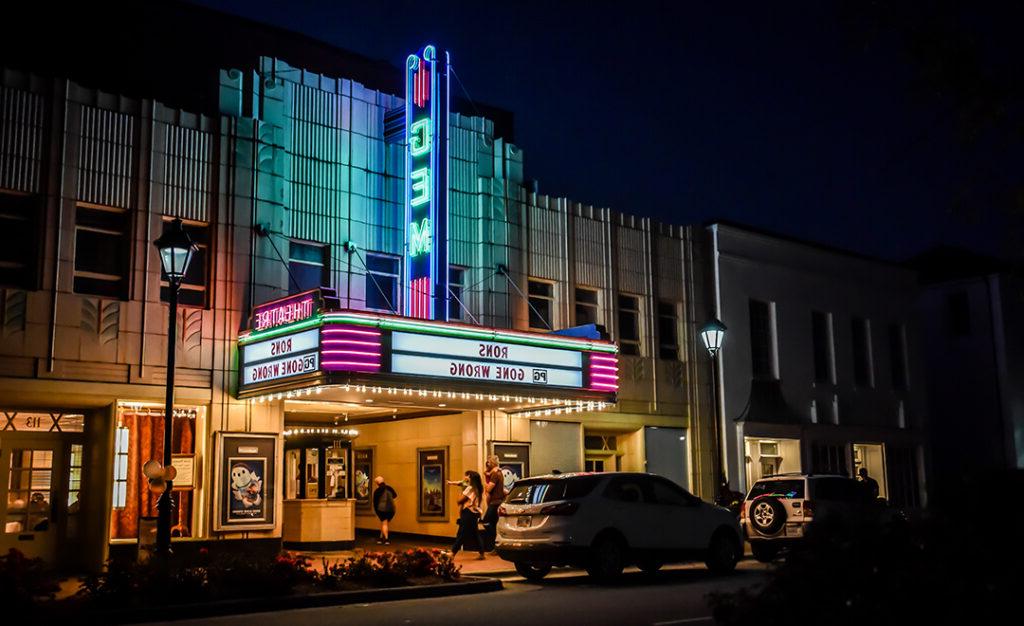
Gem Theatre
The Gem Theatre opened on Dec. 31, 1936, and continues operating as a single-screen theater in downtown Kannapolis. In 2021, it celebrated 85 years and inclusion to the National Register of Historic Places. The theater underwent a million-dollar renovation but retained its historic charm — and balcony seating — and remains a popular spot to see first-run movies.
“When you think of something that has stood the test of time in Cabarrus County, it’s the Gem Theatre,” says Sedlak-Propst.

Swanee Theatre
Plan your visit to downtown Kannapolis to experience the Gem along with a second historic theater located steps away. Built in 1940, the restored Swanee Theatre recently reopened as a music and entertainment venue.

73 & Main
In 1932, the building in the heart of downtown Mount Pleasant operated as a hosiery mill. It was later a post office, dental office and furniture store before being refurbished and reopened as 73 & Main, an upscale restaurant serving farm-to-table fare.

The Inn at Mt. Pleasant
Add another storied chapter to your time in town with a stay at The Inn at Mt. Pleasant. Built circa 1920, this beautiful bed and breakfast is located within walking distance of downtown shops, restaurants and the Eastern Cabarrus Historical Society Museum in the Mount Pleasant Historic District.
Spooky Sidebar
Cabarrus County has a few skeletons in its closet: Sedlak-Propst notes that a ghost dog is believed to run along Spring Street in Concord and the John O’Dell House on Union Street summons spirits with the spookiest decorations in town around Halloween.


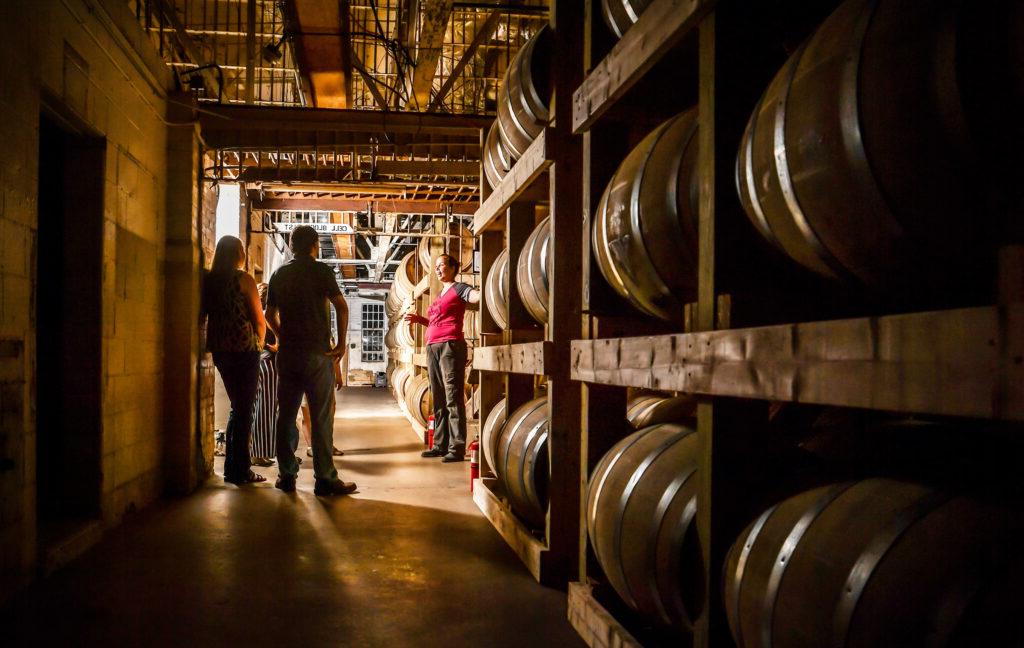
Want to see some paranormal activity in action? Southern Grace Distilleries, a craft distillery housed in a former prison, hosts the Convicted Spirits of Whiskey Prison, a tour led by experienced paranormal investigators to summon the spirits that haunt the prison.
What’s In a Name?
As you travel between historic and repurposed buildings and landmarks, consider how some of the cities, streets and businesses got their names with the fun facts below.
Concord
Legend has it that the Scots-Irish and Germans, who settled in separate parts of Cabarrus County, needed to decide on the place to locate the central government. There was discord among the groups, so Stephen Cabarrus wrote a letter — which is saved in the archives at the Historic Cabarrus Association — asking them to settle their differences. The two groups came together in concordance with peace, which is how the town came to be known as Concord.

Union Street
The main street running through Concord was named at the same time as the town. It was a nod to the “union” of the Scots-Irish and Germans in settling the issue of where the county seat for Cabarrus County should be located.
Learn More About Our Communities
While this article scratches the surface of the history of Cabarrus County as a whole, there’s so much more to each of the communities that make up the county. From Concord and Kannapolis to Midland, Harrisburg and Mount Pleasant, learn more about what makes each community so unique.




